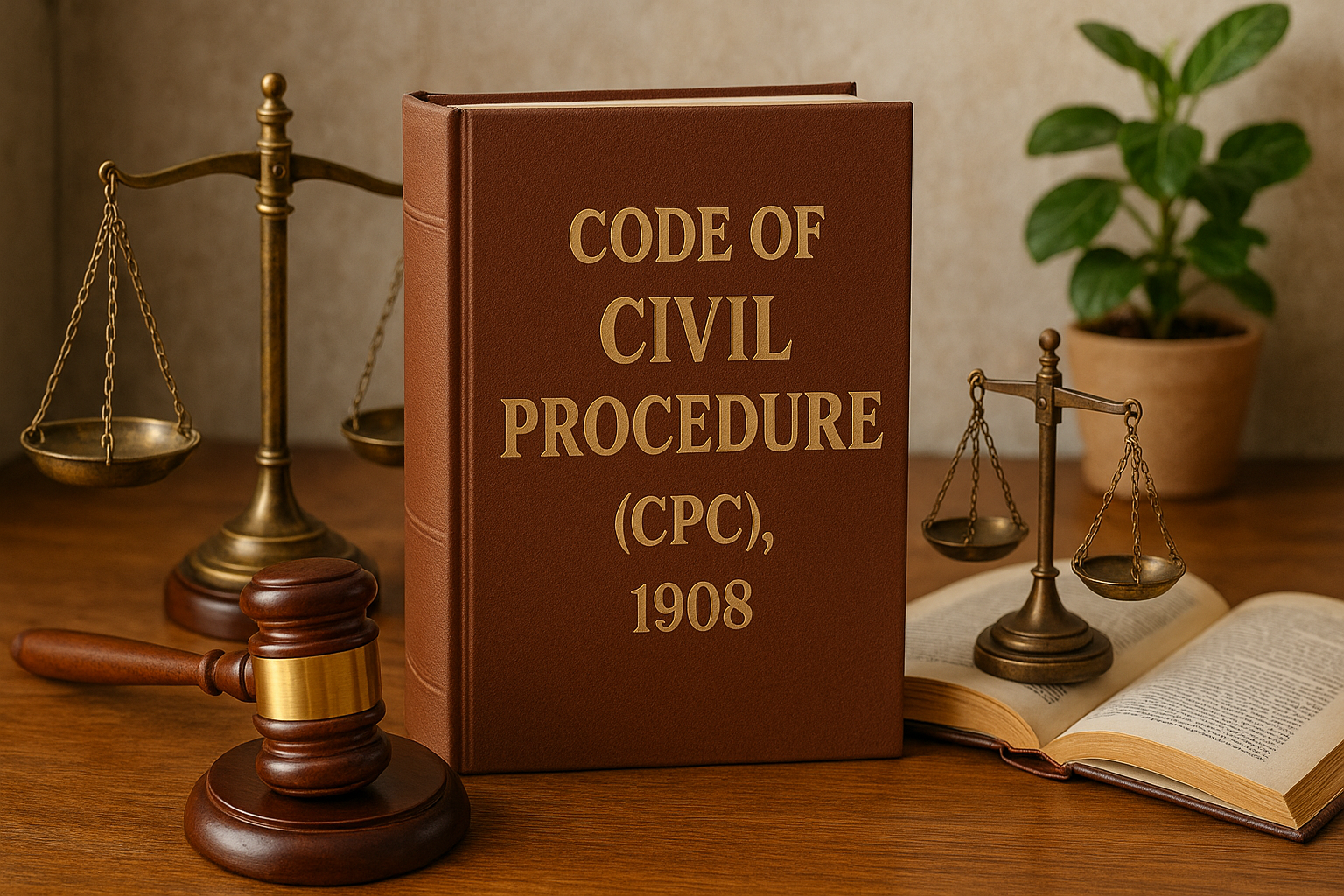Alternative Dispute Resolution (ADR) under CPC, 1908
What is ADR? Alternative Dispute Resolution (ADR) refers to non-judicial methods of resolving disputes, where parties settle their issues outside the courtroom with the help of neutral facilitators. ADR mechanisms are faster, cost-effective, and help reduce the burden on courts. Legal Basis: Section 89 of CPC Section 89 CPC mandates that if the court believes that a dispute can be settled outside court, it shall refer the parties to one of the ADR methods. Introduced through the 2002 Amendment to promote amicable dispute resolution. ADR Methods Recognized Under CPC ADR Method Who Facilitates It? Key Features Arbitration Arbitrator(s) chosen by parties Binding, quasi-judicial, governed by Arbitration Act Conciliation Conciliator helps parties negotiate Informal, non-binding unless settlement reached Mediation Neutral mediator guides discussion Voluntary, confidential, focuses on mutual agreement Judicial Settlement Referred to another judge Functions like a mediator; binding if settlement is reached Lok Adalat Conducted under Legal Services Authority Statutory, settlement has force of a civil court decree Section 89: Step-by-Step Process Court identifies possibility of settlement Parties are referred to ADR (under Section 89 + Order X Rule 1A) ADR process conducted by neutral forum Settlement reached? Yes → Court records it as decree No → Case resumes in regular court Objectives of ADR Under CPC To ensure speedy justice To promote out-of-court settlements To reduce pendency of civil suits To maintain relationships between parties (especially in family or business disputes) Order X Rule 1A, 1B, 1C – Procedural Guidance Rule Description Rule 1A Court shall direct parties to opt for ADR after hearing Rule 1B Parties appear before ADR forum/counseling center Rule 1C If ADR fails, court resumes the trial When Can ADR Be Used? Civil suits involving: Contracts and commercial disputes Matrimonial or family issues Partition and property disputes Banking, insurance, and service-related matters Not suitable where: Dispute involves criminal liability Cases requiring urgent injunctions Issues of public interest or constitutional interpretation

